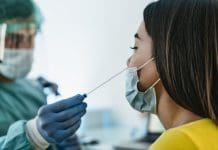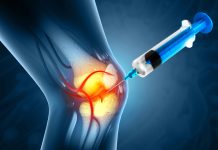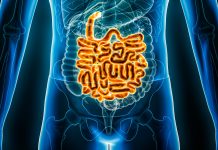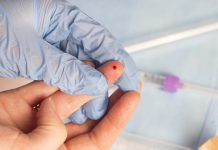Elinzanetant offers a new, non-hormonal treatment option for menopausal hot flushes and night sweats. Now approved by the MHRA, it provides symptom relief for women seeking alternatives to hormone therapy
The MHRA has become the first medical regulator in the world to approve elinzanetant, a novel non-hormonal oral agent, for the treatment of moderate to severe vasomotor symptoms associated with menopause. This approval introduces a new therapeutic option targeting neurokinin receptor pathways, expanding treatment possibilities beyond hormone replacement therapy.
The new marketing authorisation was granted on 8 July 2025 to Bayer plc.
Elinzanetant significantly reduced the number and intensity of hot flushes
Approximately 13 million women in the UK are going through perimenopause or menopause, with up to 80% expected to experience hot flushes during the menopause transition, and many remaining untreated.
When oestrogen levels drop during menopause, specific brain cells become overactive and interrupt the body’s ability to control temperature, which leads to hot flushes and night sweats.
Elinzanetant works by calming these signals in the brain, helping to bring the body’s temperature back to a normal level. The medication can also help alleviate sleep problems and is administered in tablet form.
Julian Beach, MHRA Interim Executive Director of Healthcare Quality and Access, said: “Hot flushes and night sweats associated with menopause can have a significant negative impact on quality of life.
“We are therefore pleased to announce our approval of elinzanetant, which has met the MHRA’s standards for safety, quality, and effectiveness.
Elinzanetant offers a non-hormonal alternative for those who may not be able to, or prefer not to, take hormone-based therapies. As with all licensed medicines, we will continue to monitor its safety closely as it becomes more widely used.”
Successful in-human clinical trial
Elinzanetant’s approval is based on results from the OASIS clinical trials, which involved over 1,400 women aged 40 to 65 across several countries.
The Phase III OASIS 1 and 2 clinical trials were randomised, double-blind, placebo-controlled studies evaluating the efficacy and safety of elinzanetant in menopausal women experiencing moderate to severe vasomotor symptoms, such as hot flushes and night sweats. Participants received a daily oral dose of 120 mg elinzanetant or placebo for 12 weeks. Results showed that elinzanetant significantly reduced both the frequency and severity of hot flushes compared to placebo, with improvements observed early in the treatment course. Secondary outcomes also demonstrated enhancements in sleep quality and overall menopause-related quality of life.
“Menopausal symptoms are frequent side effects of endocrine therapy for breast cancer, often leading to treatment discontinuation, which is why management of these symptoms can play an important role in breast cancer treatment,” said Dr. Fatima Cardoso, Principal Investigator of OASIS-4, from Lisbon, Portugal. “With no currently approved treatments for this indication, there is an unmet medical need for therapeutic options.”
“The robust efficacy and favourable safety profile of elinzanetant reinforces its potential as a non-hormonal treatment for women experiencing menopause,” said Dr. Christian Rommel, member of the Executive Committee of Bayer AG’s Pharmaceutical Division and Global Head of Research and Development. “We look forward to submitting applications to health authorities for marketing authorisations of elinzanetant to treat moderate to severe VMS associated with menopause in women, building upon our extensive legacy and commitment to women’s healthcare.”











